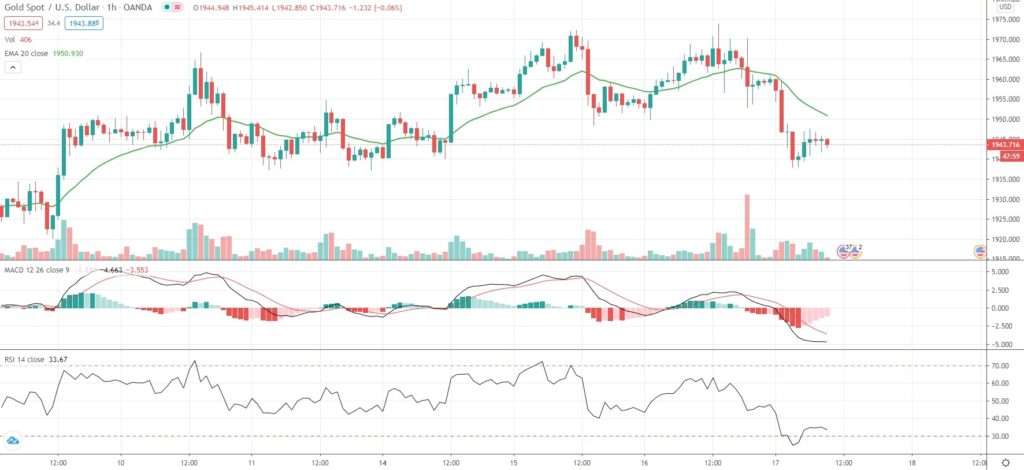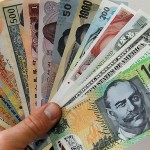Gold retreated from Wednesday’s two-week high and was losing almost 1% on Thursday, after Federal Reserve Chair Jerome Powell’s remarks on economic outlook bolstered US bond yields and lifted the US Dollar to a one-week high against major peers.
US economy is now expected to contract 3.7% in 2020, compared to a 6.5% contraction forecast in June, while the rate of unemployment is now projected to surge to 7.6% in 2020, compared to a June projection of 9.3%.
“Investors across the Asia-Pacific are perhaps not inspired by last night’s FOMC meeting, in which the central bank seems to be reluctant to add stimulus in view of improving fundamentals,” Margaret Yang, a market strategist at DailyFx, said.
“This led to a stronger U.S. dollar, and a weaker gold price.”
Still, however, the US central bank indicated that interest rates would remain close to zero until at least the end of 2023 when “maximum employment” is achieved and inflation rate is set to “moderately exceed” the 2% inflation objective.
“Lower-for-longer interest rates, continued quantitative easing by central banks and the U.S. fiscal position potentially debasing the dollar continue to be long-term supportive factors for a higher gold price,” Jeffrey Halley, a senior market analyst at OANDA, said.
Meanwhile, Bank of Japan left policy unchanged and slightly revised up its macroeconomic forecast, indicating that an immediate stimulus increase was not required.
As of 9:11 GMT on Thursday Spot Gold was retreating 0.82% to trade at $1,943.47 per troy ounce, after earlier touching an intraday low of $1,937.84, or a price level not seen since September 14th ($1,937.25). Yesterday the commodity rose as high as $1,973.78, its strongest level since September 1st. The precious metal has dropped 1.21% so far in September, following a 0.42% loss in August.
Meanwhile, Gold futures for delivery in December were losing 1.00% on the day to trade at $1,950.80 per troy ounce, while Silver futures for delivery in December were down 1.75% to trade at $26.995 per troy ounce.
The US Dollar Index, which reflects the relative strength of the greenback against a basket of six other major currencies, was edging up 0.17% on Thursday to 93.26, after earlier climbing as high as 93.59, or its strongest level since September 9th (93.66).
In terms of macro data, today Gold traders will be paying attention to the monthly report on US housing starts at 12:30 GMT. The number of housing starts in the country probably decreased to 1.478 million units in August, according to expectations, from the seasonally adjusted annual rate of 1.496 million in July, also the highest level since February.
A separate report at 12:30 GMT by the US Labor Department may show the number of people in the country, who filed for unemployment assistance for the first time during the business week ended September 11th, probably eased to 850,000, according to expectations, from 884,000 in the preceding week.
Meanwhile, near-term investor interest rate expectations were without change. According to CME’s FedWatch Tool, as of September 17th, investors saw a 100.0% chance of the Federal Reserve keeping borrowing costs at the current 0%-0.25% level at its policy meeting on November 4th-5th, or unchanged compared to September 16th.
Daily Pivot Levels (traditional method of calculation)
Central Pivot – $1,961.10
R1 – $1,972.28
R2 – $1,984.96
R3 – $1,996.14
R4 – $2,007.33
S1 – $1,948.41
S2 – $1,937.23
S3 – $1,924.54
S4 – $1,911.85






